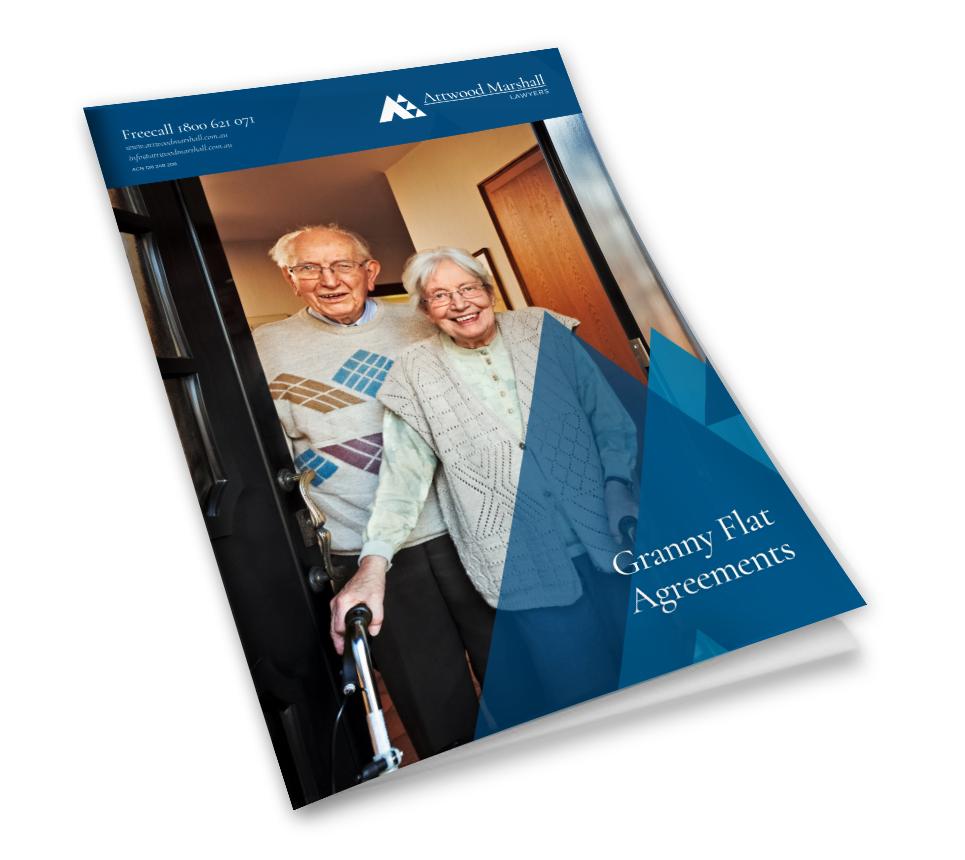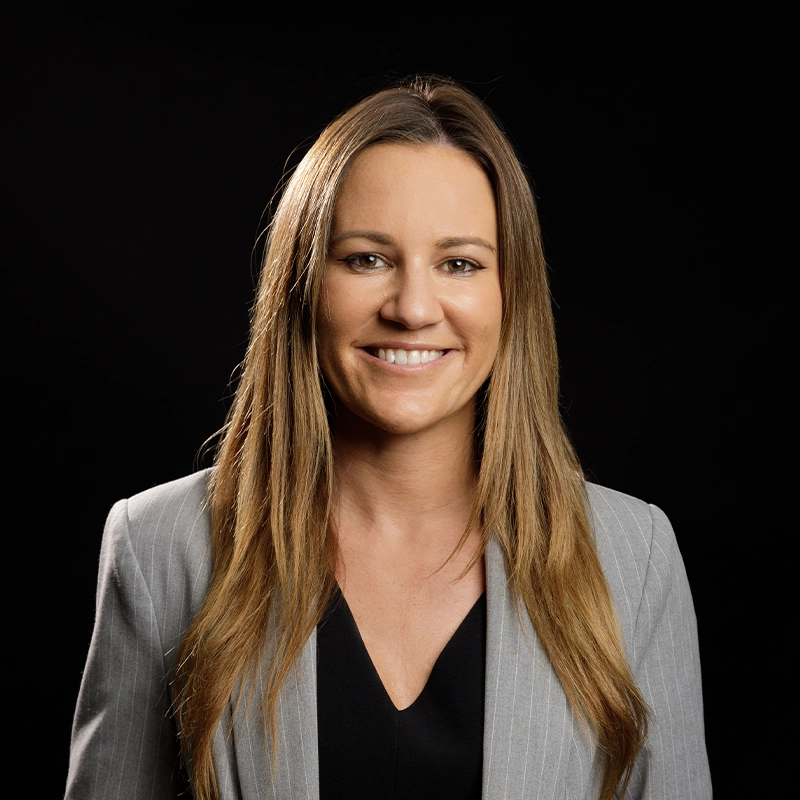Moving into a granny flat is a great way to live close to your loved ones while providing them with a first home or investment property. Before you commit to such a significant change in living arrangements it is crucial to seek advice from a lawyer who can help you document the agreement properly and discuss any issues that may need your consideration.
Introduction
A Granny Flat Agreement can help elderly parents maintain a pension and take advantage of Centrelink concessions such as Rent Assistance. According to the Australian Bureau of Statistics, 8.2% of people aged over 65 years live with their family with the living arrangement more likely as they get older, with 12.2% of people over 85 living at home. Many families enter into an informal agreement between themselves about how an older person would be cared for while living in a granny flat on the family property. Not only does this appear the easier option – without paperwork – it appears frugal, helping children to the primary dwelling while avoiding any capital gains tax which might be incurred through a property transaction.
However, the Australian Law Review Commission found in its 2017 report Elder Abuse – A National Legal Response that under an informal arrangement, if the relationship between parents and children breaks down or the promise of care is not delivered, the older person is put at a disadvantage. In some cases, an older person may even be left homeless.
The ALRC urged that the use of legally enforceable family agreements would be a useful measure in preventing elder abuse because such contracts protect the rights of the older person. We highly recommend a legally binding Granny Flat Agreement is written by a lawyer to protect your rights.
What is a granny flat interest?
For social security purposes, a parent can transfer or sell their home under the granny flat provisions and pay money to their children for a lifetime right or the use of the “granny flat” (the ‘granny flat interest’). Normally the transferred property or funds would be deemed to be a gift and would affect the pension entitlements of the parent. However, the ‘granny flat’ rules allow for any property transferred or money paid to the parent’s children to be exempt from the usual deeming legislation by Centrelink.
What type of property falls under this agreement?
The requirements are quite flexible and you do not actually have to build a separate residence. As long as there is a designated room or area that allows for a parent’s exclusive occupancy and there is an agreement to support the arrangement, Centrelink will usually approve it. Rooms such as a loft room, duplex, a room in an apartment, can all come under the agreement.
What assets can you transfer in exchange for a granny flat interest?
- Ownership of your home
- Some of your other assets (money, for example)
Conditions that must be satisfied for the right to be established:
- Right of occupancy for life in a residential property
- Payment has been made for the right of occupancy
- The granny flat resident does not own the property in which they reside
How are these properties made?
- By transferring the title of the house to another person
- By providing the funds to build accommodation on another person’s property
- By purchasing a house and then registering it in another person’s name
- By paying a ‘reasonable’ amount of money to a relative
How does Centrelink assess the interest?
Centrelink will look at the value of the asset transferred to see if you paid a ‘reasonable amount’. If Centrelink consider you have transferred more than the value of the residence right they will determine you have deprived yourself of an asset. This could affect the amount of pension you are paid. You need to advise Centrelink what you transferred to the homeowner in exchange for the granny flat interest. Centrelink needs to know this so they can:-
- See if you paid too much; and
- Assess whether you are a homeowner or a non-homeowner, thus determining which assets test threshold applies, and whether you have any entitlements to Rent Assistance.
How this can affect your Will
The parties also need to be aware that once the money is given to the child in exchange for the granny flat interest the money no longer forms part of the parent’s estate. The right only exists in the parent’s lifetime.
This means that upon the death of the parent, any property or money handed over to the child will not be distributed in accordance with their Will. It is, therefore, a good idea to make sure the Will and Enduring Powers of Attorney are updated to marry up with the granny flat agreement. This way all family members are protected and everyone knows what is going on. Sometimes jealous siblings cause friction if they are kept in the dark.
Does Centrelink recommend you have a lawyer draft your Granny Flat Agreement?
Yes, Centrelink recommends that you have a properly drafted legal agreement drawn up to give evidence of the granny flat interest. To ensure the arrangement falls under the relevant rules the document should, at the very least, confirm you have the security of tenure in the property and state whether you are liable for any upkeep of the property or payment of rent. Other factors that should also be considered and included in the agreement include:-
- Who does what for whom (eg cooking, cleaning, washing etc)?
- Who pays for what (electricity, phone etc)?
- How much privacy will you have within the home?
- How much independence will you have to lead your own life versus how tied down will you be by the family’s timetable?
- How much time do you want to spend with grandchildren, and do you want to be involved in childcare?
- What happens if your health deteriorates and your care needs change (eg you need to be placed in a nursing home or similar care facility)?
Whilst the exemption allowed by Centrelink is an excellent idea to provide solutions for elderly parents looking for a stable home and family support in their retirement, it is important that the parties are very clear about the terms under which they enter into this arrangement. It is very important to enter into a proper agreement because no matter how close families are, it is amazing how many families have a falling out in this situation and the parent wants their money to be paid back. There needs to be provision for what happens if things turn sour for the parent needing money for a bond to go into an aged care facility.
Without a Granny Flat Agreement, a dispute may end up before the court
In the case of Peterson -v- Hottes [2012] QCA292, a parent paid $70,000.00 to her daughter to assist in the purchase of a property worth approximately $300,000.00 in 2001. In approximately 2007 they had a falling out and the mother wanted a percentage share in the value of the property which had appreciated in value since its purchase in 2001. At first instance in the Supreme Court, the Judge did not find an equitable interest in favour of the mother and ordered the daughter to pay back the original funds advanced of $70,000.00.
The mother appealed to the QLD Court of Appeal and in a recent decision, the appeal was successful and the mother was awarded a 25% equity share in the house, as well as a 25% share of rentals received from the property from the date she vacated the premises until resolution of the matter. Significantly, there was no written contract entered into between the parties and the Court had great difficulty in attempting to sort out exactly what the intention of the parties was. The fact that this family was tied up in litigation in the Supreme Court and a subsequent appeal to the Court of Appeal would have spent at least $100,000 over and above the amount that they were arguing about.
About the author, Wills & Estates Partner Angela Harry
Angela Harry is the Partner who leads the Wills & Estate Department and has been with the firm since 2006. Angela graduated from the Queensland University of Technology with a Bachelor of Business (majoring in International Business) and a Bachelor of Laws (with Honours), and after completing her PLT was admitted as a lawyer of the Supreme Court of Queensland in 2008. Angela holds a Master of Applied Law (Wills & Estates) degree through the College of Law, has completed the College of Law’s Certificate in Testamentary Trusts and the Queensland Practice Management Course. Angela also holds membership with the Society of Trust & Estate Practitioners (STEP). STEP is the worldwide professional association for those advising families across generations. STEP promotes best practice, professional integrity and education to it’s members.
If you would like to find out more information about granny flat agreements or would like to make an appointment with our friendly team, please contact our Wills and Estates Department Manager, Donna Tolley, on direct line 07 5506 8241, email dtolley@attwoodmarshall.com.au or free call 1800 621 071 to book your estate planning review appointment with one of our dedicated Estate Planning Lawyers.

Free Info Pack
To find out more about Granny Flat Agreements, simply provide your details below to have our Granny Flat Information Pack sent to your inbox.

